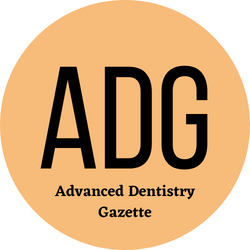What Is Geriatric Dentistry?
by siteadmin

Geriatric dentistry is a branch of dentistry that focuses on providing care to elderly individuals. It involves diagnosing and managing age-related diseases. It is often said that the mouth is a mirror of the body and oral health is a vital component of an individual's overall health. Prevention and treatment are crucial to ensuring proper oral health.
Treatment options
As the population ages, senior dentistry treatment options are becoming more sophisticated. This field of dentistry focuses on preventive care and treatment of older patients. These individuals may have several chronic conditions that affect their oral health. They may also have compromised immune systems. Understanding these factors is essential to optimal treatment planning.
Most dentists have little formal training in geriatric dentistry. To address this need, the Arcora Foundation has partnered with a team of national experts to create a course aimed at general dentists. The course will include patient case studies and discussions of different treatment options. Its goal is to improve patient education and awareness of the changing dental landscape.
Geriatric dentistry services can help older patients address a variety of problems related to age. Patients often suffer from age-related diseases like gum disease and root caries. In some cases, dental problems may result from medications or chronic conditions. As a result, dental care for elderly patients must address the unique needs of this population.
In addition to addressing older patients' physical and cognitive needs, geriatric dentistry practitioners engage their caretakers. Moreover, they communicate with patients in a language they can easily understand. This is especially beneficial for patients who may suffer from cognitive impairments.
Preventive measures
One of the most important things a geriatric dentist can do for older patients is prevent infections. Infections in the oral cavity can lead to serious conditions, such as bacterial endocarditis. These infections affect the heart and valves and can be fatal if not treated in time. These infections can also affect older adults' self-esteem and well-being.
The aging population is growing, and their dental health needs. Age-related changes make them more susceptible to oral health issues like gum disease, tooth decay, and tooth loss. Furthermore, systemic conditions and medications can make them more prone to oral diseases. Researchers turned to the World Health Organization's website and the PubMed database to identify older adults' current and future oral health needs. These databases contain clinical studies and systematic reviews.
Many preventive measures for geriatric dentistry can be implemented at home and by family members. For instance, assisted tooth brushing, oral hygiene guidelines for caregivers, and the use of fluoride can be effective ways to promote oral health. A dental professional can also work with caregivers to educate them on the importance of good oral health.
There is also a need for health care professionals to receive further training in gerontology and improve their skills. Improving these techniques can help increase the life expectancy of the elderly population.
Specialized care
Residents can take advantage of specialized care in geriatric dentistry by calling a dental clinic specializing in treating senior patients. These dentists can make house calls for homebound seniors and patients with dementia, providing emergency care, second opinions, and exams. They can also perform small fillings and extractions and fabricate complete and partial dentures.
The increasing number of older adults in our society will require specialized care in oral health. For this reason, dentists must have special training and education in geriatric dentistry. This will require dental professionals to recognize seniors' dental, physiological, and psychological needs. This includes the assessment of dental and other risks, as well as risk reduction protocols.
The practice of geriatric dentistry is becoming more widely recognized. Because of this, dentists who specialize in treating the elderly can treat various age-related conditions more effectively than a typical dentist. These conditions include dry mouth, coronal and root caries, and periodontitis. Nearly sixty percent of adults 65 and older suffer from at least one of these conditions.
Since many older patients take multiple prescription medications, they often have more complex dental needs. In treating these patients' dental needs, geriatric dentistry professionals also know which medications interact well with oral care medications. Also, multiple prescriptions make it more difficult to prescribe oral care medications, so a senior dentist is trained to work around these challenges.
CATEGORY: Dentistry
TAGS: dentist, dentures, cosmetic dentistry, dental clinic, dental care
Geriatric dentistry is a branch of dentistry that focuses on providing care to elderly individuals. It involves diagnosing and managing age-related diseases. It is often said that the mouth is a mirror of the body and oral health is a vital component of an individual's overall health. Prevention and treatment are crucial to ensuring proper…
Recent Posts
- Why You Should Invest in a Salon Treatment for Your Hair in Houston
- Exploring Integrative Approaches to Diagnostic Dentistry: A Holistic Perspective
- Exploring the Fundamentals of Diagnostic Dentistry: A Comprehensive Guide
- Embracing Geriatric Dentistry: Nurturing Oral Health Through the Golden Years
- The Essentials of General Dentistry: Your Guide to Oral Health
